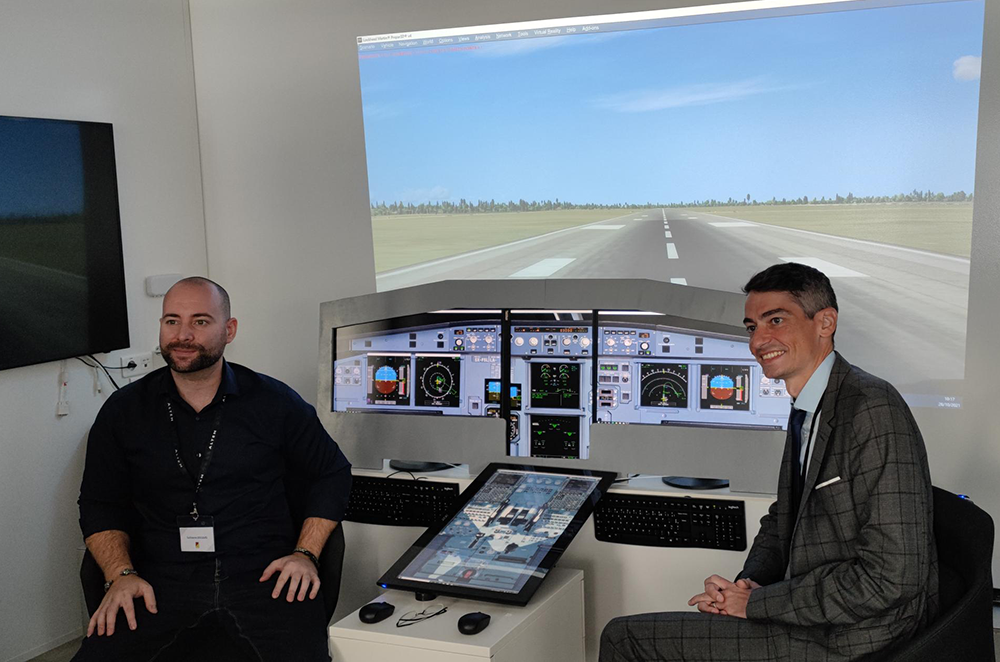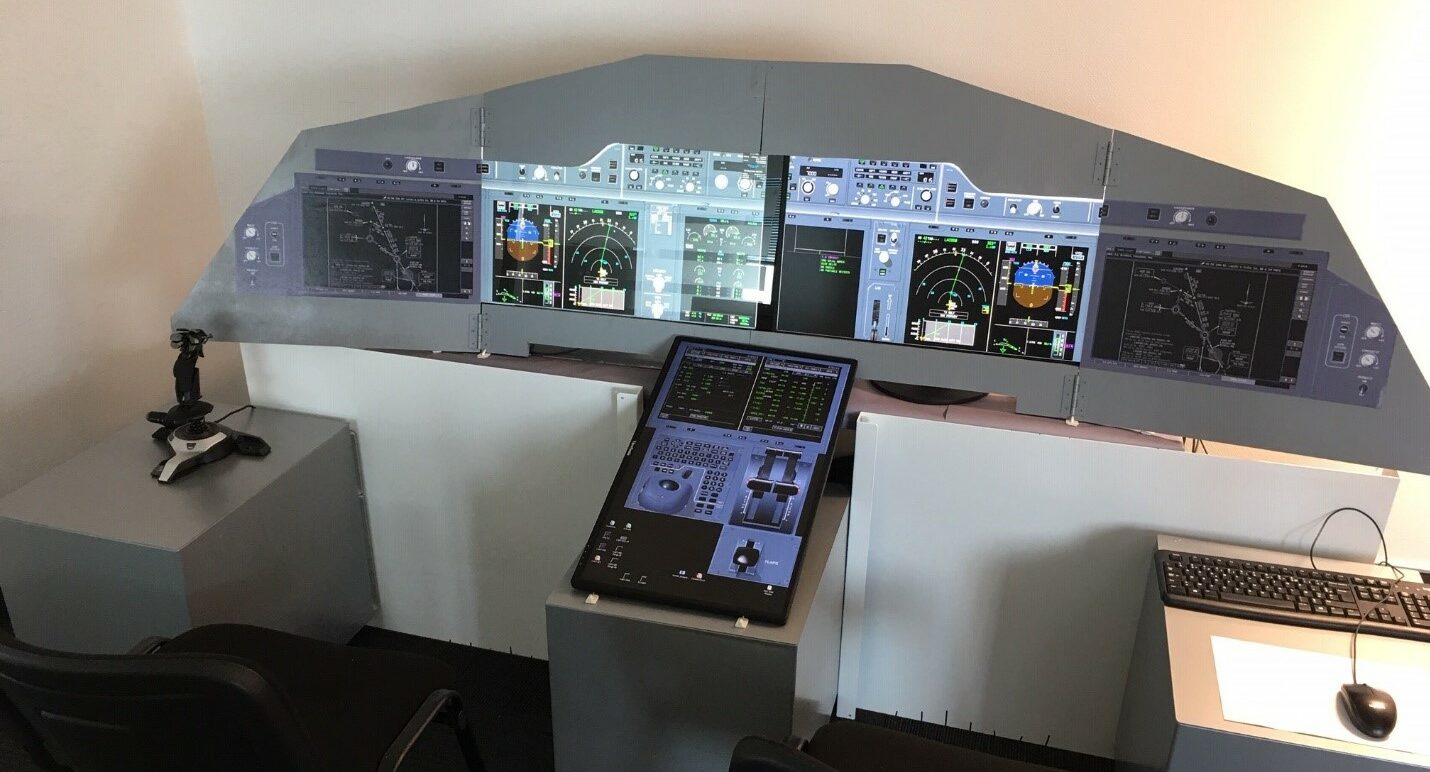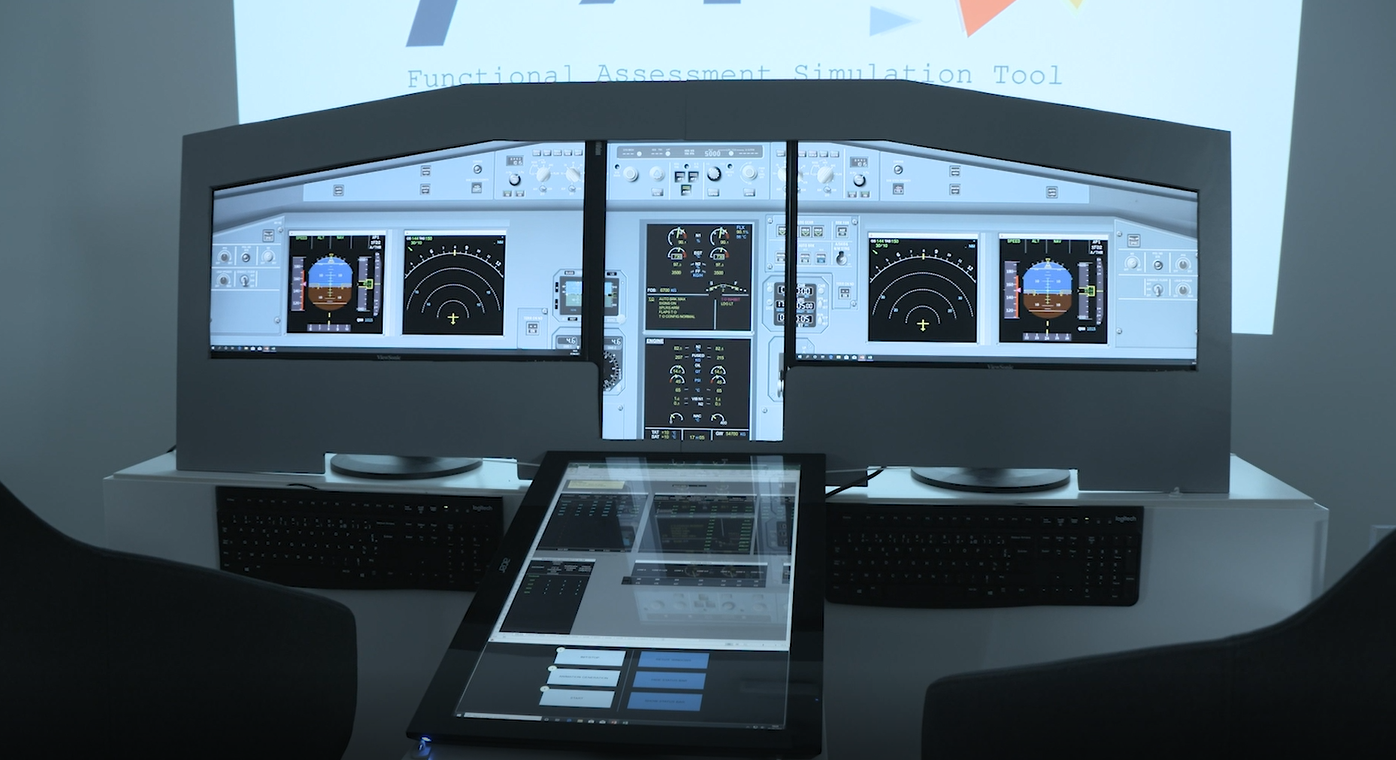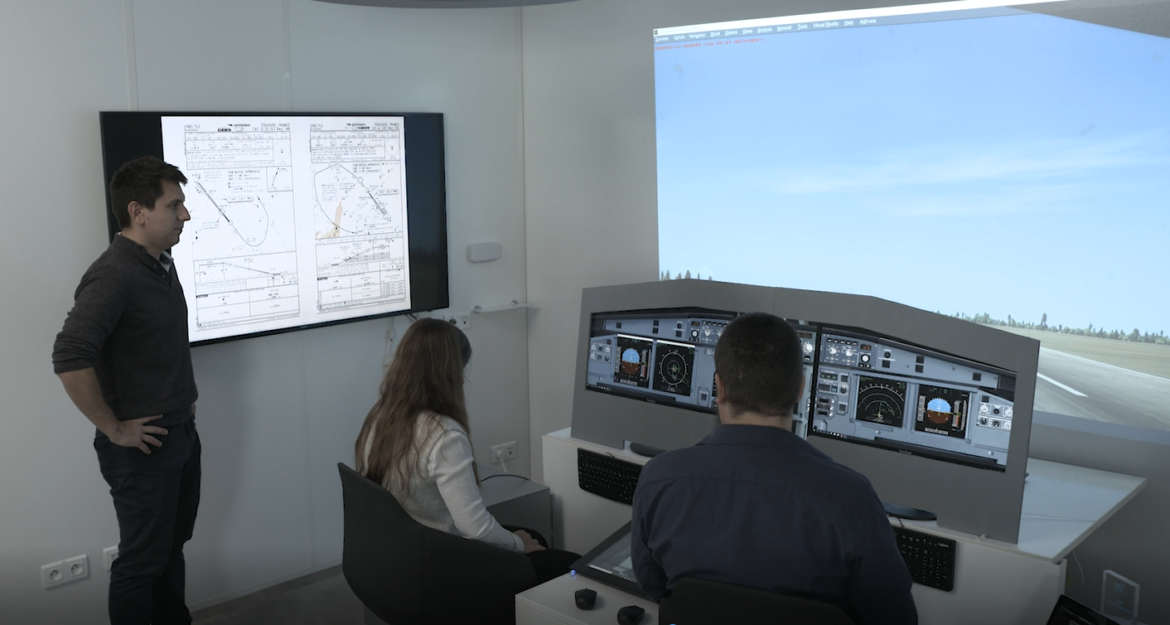FAST: a turning point for the cockpit platform by ALTEN

The growth in air traffic and the development of new technologies mean that the cockpit environment has to evolve constantly to offer pilots new functions. Existing simulators for validating new cockpit functions cover a wide range of needs and are therefore over-subscribed and very expensive.
Yet some features could be tested upstream. Based on this observation, ALTEN developed its own prototyping tool in 2016: FAST.
What if we could pre-validate new HMI without using a simulator?
As we explained in a previous article, FAST is a simple, flexible tool dedicated to the pre-validation of new human-machine interfaces (HMI), without the need for a traditional simulator.
‘The idea was to quickly come up with different cockpit HMI proposals with the pilots’.
Guillaume Discours, ALTEN Cockpit Operations Project Manager.
An open environment, compatible with the ‘new world
The existing simulators, which are already overloaded in normal times, have become even more so since the pandemic, for two major reasons: firstly, schedules have shifted and, secondly, the very strict health restrictions set a quota of 4 people in a simulator. As a result, there is a greater loss of information, particularly pilot feedback, during exchanges in a configuration such as this.
In this situation, FAST has 3 key strengths:
- It is a more open environment than a cockpit because the platform does not have a closed structure: a larger number of users can take part in the sessions and discuss the pre-validation of GUIs.
- FAST includes different means of support and the teams have been able to adapt it to remote control using video-conferencing software. Today, thanks to a tool like FAST developed by the ALTEN teams, it is possible to organise HMI pre-validations without seeing each other, a feature already tried and tested during the various confinements with pilots.
- The traditional platforms, overbooked, no longer allow new employees of major aeronautical industrial groups to be introduced to cockpit interfaces. FAST makes it possible to support these new arrivals throughout their integration process.
‘Keep it simple’ is the watchword
Beyond the simplicity of its physical and technical deployment, FAST demonstrates day after day its qualities of flexibility and accessibility.
Accessibility first of all, through the geographical proximity of ALTEN’s offices, where the FAST platform is located, to the design offices of its largest aeronautical principals: 5 minutes is all it takes to go from one building to another and interact! FAST can also be made available to customer teams so that they can work directly on the tool, in complete autonomy, after an initial training phase provided by ALTEN. The result is an increase in skills and enhanced collaboration between teams.
Secondly, flexibility, because ALTEN teams know how to adapt FAST and its equipment on the prototyping side to different aircraft configurations, completely independently, depending on customer needs. Below are 2 examples of different cockpit environments:


A tried and tested training offer
To help its customers’ engineering teams gain practical skills in cockpit interfaces, ALTEN has set up a training programme based on FAST. ALTEN’s training solution, centred on the use of a flight simulator consisting of a cockpit interface and all the components of the FAST platform (2 screens, 1 touch screen, 1 video projector and 1 sidestick), meets various challenges and objectives:
- The aircraft development life cycle
- Cockpit system design
- Understanding flight procedures
- Introduction to the cockpit interface
- Mastering the principles of flight management
- Carrying out a complete flight
Delivered by pilots trained in dedicated schools or via airlines and certified, the training courses are available in several module levels according to needs: introduction to flight (Beginner Training), complete flight and flight procedures (Advanced Training) and operational focus (flight preparation, flight operations, flight management and guidance mode, systems failures).
Each participant leaves the training module with a USB key of the flight recording, enabling them to replay the case studied, directly from their PC, and to analyse it further with their work teams.
Feedback from the training sessions has been very positive and encouraging. 6 to 8 annual sessions are planned and will serve as the basis for a continuous improvement approach to constantly meet the range of needs of ALTEN’s customers, FAST being all the more promising for a multi-sector future.
FAST, a tool for cohesion and professional development

The FAST platform, hosted in an ALTEN open space in Toulouse, is more than just a solution to support the Group’s customers in their technological challenges: it is also a working tool for learning and sharing. Accessible to teams throughout the day, they interact around the platform, advising each other and perfecting their skills together.
The FAST teams are keen to share these opportunities with new recruits! The platform is indeed the subject of internships, as it is still in its infancy and its development prospects are vast, particularly in terms of transport, connectivity and accessibility. These are all challenges that ALTEN engineers intend to take up to make FAST the ideal test tool for any rapid HMI evaluation in increasingly agile environments.



 Aeronautics
Aeronautics




